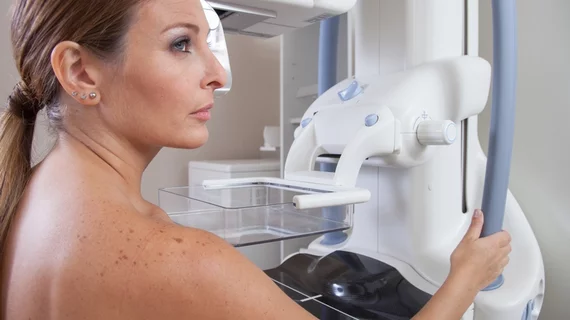Poor image quality forces FDA to suspend mammography at imaging practice
A North Carolina radiology practice has been forced to stop performing mammography screenings after poor image quality led to it losing accreditation for the service.
Raleigh Radiology Blue Ridge said it’s working now to correct the issue and hopes that the service will be back up and running soon. Practice leaders noted that the review—conducted by the FDA and American College of Radiology—included just a small sample of images collected over a two-year period. They’re now working closely with the two agencies on a plan to correct any deficiencies, according to an announcement.
“We strive to provide our patients with the most advanced mammography technology and take pride in the services offered to, and treatment of our patients. We are very sorry for any concern this has caused for our patients,” the practice wrote.
Laura Thomas, director of breast imaging, noted that the ACR’s review only looked at the technical quality of mammography images. The vast majority were deemed to be acceptable, with no visible cancer or disease overlooked on any image.
Patients who received mammograms at the practice between November 2017 and 2019 are now receiving letters from the FDA, alerting them to the issue.
“We strive to provide our patients with the most advanced mammography technology and take pride in the services offered to, and treatment of our patients. We are very sorry for any concern this has caused for our patients,” the practice added.
Mammography providers are typically inspected annually and accredited every three years, according to the FDA. The Mammography Quality Standards Act, meanwhile, spells out minimum standards for the appearance of images.

